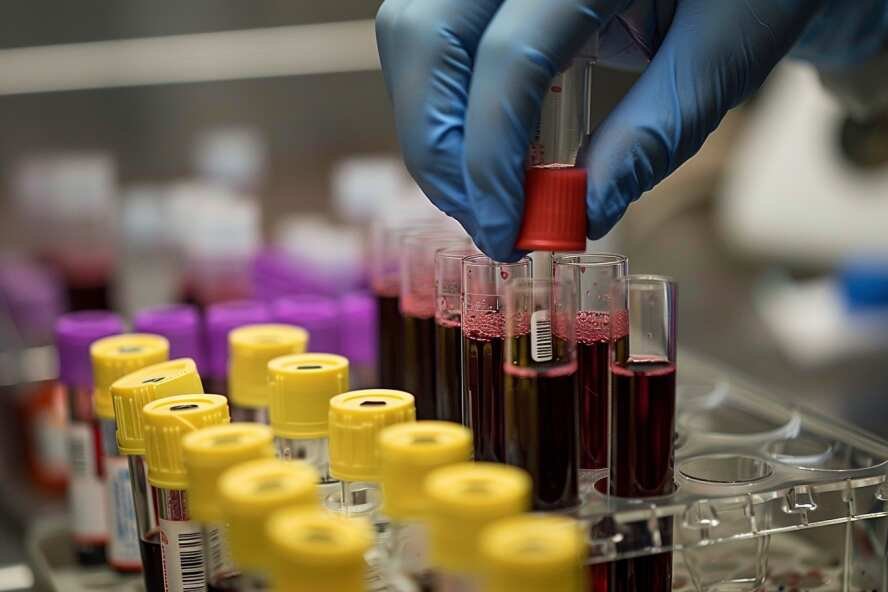AFP (Alpha Fetoprotein)
The alpha-fetoprotein or AFP blood test is used in two circumstances: in the follow-up of pregnancies in order to detect possible fetal malformations and when a patient presents signs which could be related to a cancer of unknown origin (weight loss, fatigue, unexplained fever, etc.).
The elevation of alpha-fetoprotein, in this case, will encourage the doctor to carry out additional examinations in search of a possible cancer of the liver, testicle, ovary, pancreas, stomach or of the lung.
AFP is one of the molecules grouped together under the name of markers. These molecules, in small quantities in healthy individuals, increase during the appearance of neoplastic tissues. Their dosage in biological fluids, such as blood, urine, effusions, makes it possible to detect the presence of tumor cells.
These markers can participate in screening, diagnosis, prognosis, evaluation of therapeutic efficacy, monitoring of patients and detection of cancer recurrences.
Read also: Why Do Many People Get Cancer?
Alpha-fetoprotein is used as a post-treatment marker for liver or testicular cancer. Its value must in fact decrease if the treatment has been effective and it rises if the cancer progresses again (local recurrence or metastasis).
Read also: Testicular Cancer | Symptoms, Stages, Types, Diagnoses, Chances of Surviving, Treatments
But the increase in their rate can be found in variable physiological conditions (age, sex, smoker), in non-cancerous pathologies (inflammation, prostate adenoma, viral disease, etc.).
Why is the AFP test done?
Your doctor may order the AFP test to help make a diagnosis, monitor response to treatment, and check for recurrence of the following cancers:
- A type of testicular cancer called nonseminoma, or nonseminoma germ cell tumor.
- A type of ovarian cancer called a germ cell tumor.
In rare cases, AFP testing may be used to help diagnose the following cancers:
Doctors may order AFP testing when a woman is pregnant to check for birth defects and genetic disorders, such as Down syndrome, in developing babies.
In the past, doctors used AFP tests to help them diagnose a type of liver cancer called hepatocellular carcinoma. But the AFP test cannot detect hepatocellular carcinoma in particular, which is why doctors no longer use it to diagnose liver cancer. Doctors may still order the AFP test to help them diagnose certain liver disorders, such as cirrhosis or hepatitis.
AFP (Alpha-Fetoprotein) levels
The Alpha-Fetoprotein levels are measured in nanograms per milliliter (ng/mL). Here’s a breakdown of what AFP levels generally indicate:
Normal AFP Levels:
Adults: 0 ng/mL to 40 ng/mL
Elevated AFP Levels:
- Mild to Moderately Elevated: May not necessarily indicate cancer, but could be a sign of:
- Liver damage or inflammation (hepatitis, cirrhosis)
- Pregnancy
- Recovering from a recent injury
- Highly Elevated (above 400 ng/mL): This can be a sign of several cancers, including:
It’s important to note that AFP levels alone cannot diagnose cancer. Doctors will consider a variety of factors including your medical history, symptoms, and other test results.
Sources: PinterPandai, National Center for Biotechnology Information (NCBI), Laboratory Corporation of America, University of Rochester Medical Center Rochester, NY
Photo powered by Midjourney
Tumor Markers: What They Are and How They’re Used to Diagnose and Monitor Cancer


